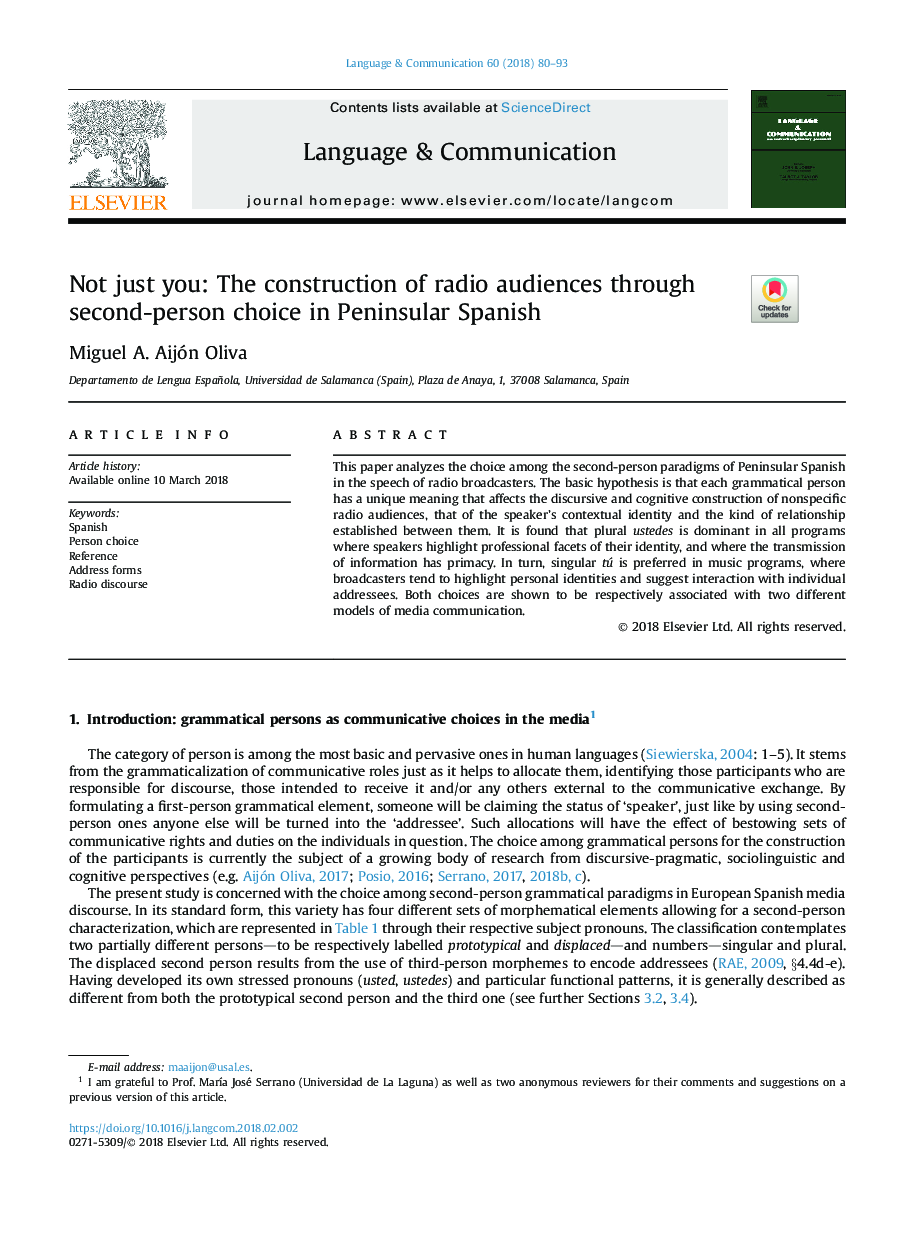| Article ID | Journal | Published Year | Pages | File Type |
|---|---|---|---|---|
| 7298248 | Language & Communication | 2018 | 14 Pages |
Abstract
This paper analyzes the choice among the second-person paradigms of Peninsular Spanish in the speech of radio broadcasters. The basic hypothesis is that each grammatical person has a unique meaning that affects the discursive and cognitive construction of nonspecific radio audiences, that of the speaker's contextual identity and the kind of relationship established between them. It is found that plural ustedes is dominant in all programs where speakers highlight professional facets of their identity, and where the transmission of information has primacy. In turn, singular tú is preferred in music programs, where broadcasters tend to highlight personal identities and suggest interaction with individual addressees. Both choices are shown to be respectively associated with two different models of media communication.
Related Topics
Social Sciences and Humanities
Arts and Humanities
Language and Linguistics
Authors
Miguel A. Aijón Oliva,
